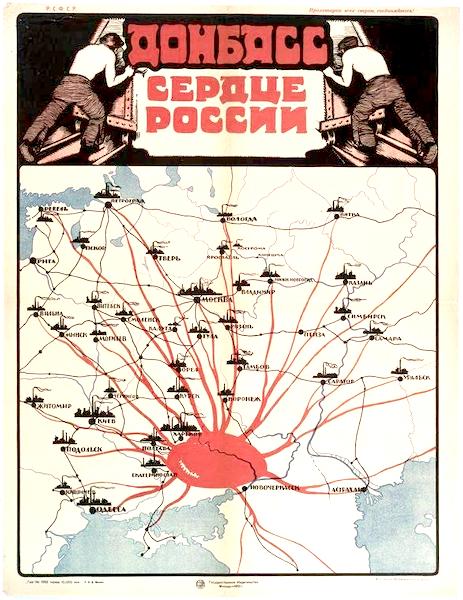Search
Democracy Links
Member's Off-site Blogs
understanding the donbass, russia and ukraine…...

Since the Russian military operation to de-Nazify and de-militarize Ukraine began in late February, there is a common misperception that the Western left is “split” over the conflict in its response.
Indeed, it is true there has been infighting within organizations such as the U.S.-based Democratic Socialists of America (DSA) between its “International Committee”—whose official statement rightly faulted NATO enlargement for “setting the stage” for Russia’s actions in Ukraine—and local branches of the group which released their own takes distancing themselves from the former.
Similar sectarian splinters have occurred among the U.S. Green Party over the issue with the Howie Hawkins-led wing on one side endorsing sending lethal aid to Ukraine and its peace action committee on the other.
However, all of them fell in line behind the corporate media in characterizing the Russo-Ukrainian conflict as an “invasion” by Moscow to be condemned. For what the late Edward S. Herman called the “cruise missile Left,” the 14,000 ethnic Russians killed in Donbass by the Ukrainian army since 2014 are “unworthy victims,” as Herman and Noam Chomsky defined the notion in Manufacturing Consent. With a few notable exceptions, the vast majority of the so-called left wing in the United States and Western Europe have gotten Ukraine totally wrong.
International relations scholar John Mearsheimer warned for years that NATO expansion threatened Moscow’s legitimate security interests and would likely lead to a hot war in Ukraine. Then again, Joe Biden himself acknowledged as much as a senator back in 1997.
Now that the U.S. president has openly called for regime change in Moscow, one wonders what new excuses NATO apologists will invent to maintain that the eastward encroachment on Russia’s borders is benevolent. Still, the source of the widespread misunderstanding today can be traced much further back in history—long before the dissolution of the Soviet Union and the reunification of Germany.
In the lead-up to the escalation of hostilities, many on the Left made reference to Russian President Vladimir Putin’s speech formally recognizing the Novorussian republics. They pointed to Putin’s blaming the Soviet policy on the Ukrainian national question for the current crisis as evidence that the Russian head of state is a reactionary and, therefore, Moscow’s actions unjust.
A recent article in Jacobin magazine, the unofficial flagship publication of the Harringtonite reformist tendency in the U.S. [Michael Harrington was a social democrat who was anti-communist], continued this line of thought by distorting early Soviet history. In particular, the modestly self-professed “leading voice of the American left” sought to historically sever the ancestral relations between Russified communists in Donbass over a century ago from the latter-day militants in the Eastern Ukrainian republics.
Never mind that it was the Communist Party of the Russian Federation, the largest political opposition to Putin, which first proposed to the State Duma back in January that the Kremlin should recognize the Donetsk and Luhansk People’s Republics.
It is impossible to understand the struggle between the two countries and the Left’s misapprehension without putting it in the context of the former Soviet Union and its demise. Leaving aside his own politics, Putin’s assertion that the Bolsheviks carved up territory of the former Russian Empire to form a Ukrainian state is a historical fact.
That this controversial decision determined the course of the next century of events from the Second World War through Ukraine’s independence to the current flare-up is also valid.
To its credit, one of the legacies of the USSR and its ethnic federalism was that it greatly reduced the frequently violent conflicts between the more than 120 different oppressed nationalities of the old Tsarist autocracy. With that being said, it would be a disservice to the socialist movement in failing to recognize that mistakes were made by the Soviet leadership over the national question. More importantly, what many self-described leftists would like us to forget is that there were other prominent Marxists at the time who were at odds with Lenin over Ukraine’s right to statehood, chiefly among them Polish-German revolutionary Rosa Luxemburg.
READ MORE:
SEE ALSO:
AN IMPORTANT RECAP: the new world order…..
FREE JULIAN ASSANGE NOW......
- By Gus Leonisky at 28 Apr 2022 - 9:42am
- Gus Leonisky's blog
- Login or register to post comments
Recent comments
1 hour 21 min ago
2 hours 9 min ago
17 hours 27 min ago
17 hours 33 min ago
18 hours 36 min ago
23 hours 6 min ago
1 day 16 min ago
1 day 25 min ago
1 day 1 hour ago
1 day 13 hours ago